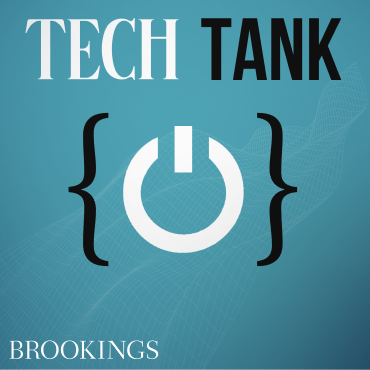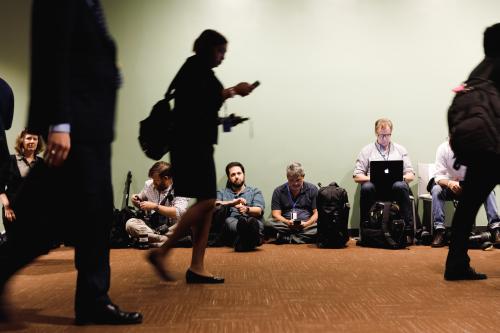The prevalence and technical relevance of machine learning algorithms have increased over the years, making predictive decisionmaking tools part of the everyday lives of online users. Today, it is harder to discern what decisions are made by humans, and the others that rely upon the cognition of machines. Most users are unaware of the widespread and normalized use of automated decisionmaking, making them completely oblivious to when machines start, and humans take over, or vice versa. Equally concerning are when online decisions make determinations about one’s eligibility for credit, housing, employment, health care, and educational opportunities.
On this new episode of the Tech Tank podcast, Darrell West is joined by Nicol Turner Lee, senior fellow and the director of the Center for Technology Innovation at Brookings who authored a new chapter that is part of the forthcoming book, “AI Governance Handbook” (Oxford University Press, 2022). The compiled edition of the handbook offers various perspectives on the current state, and future of governance of AI and related technologies.
Responding to the current debates around the trustworthiness and fairness of AI systems, Dr. Turner Lee’s chapter, “Mitigating Algorithmic Biases through Incentive-Based Rating Systems,” explores how to improve upon informed consumer choice in the use of machine learning algorithms. Given that AI systems can sometimes mimic and often amplify existing systems of inequalities, there is a need to bring consumers more agency over their trust in and engagement with these models. The chapter explores the need for greater governance and accountability, suggesting a proposed Energy Star rating, or incentive-based rating system that is more risk-aversive and reliant on increased consumer feedback to improve the performance and optimization of these online tools. Dr. Turner Lee also shares a checklist of questions that developers and companies that license and distribute these models should use to ensure more responsible and inclusive tech.
You can listen to the episode and subscribe to the TechTank podcast on Apple, Spotify, or Acast.
The Brookings Institution is committed to quality, independence, and impact.
We are supported by a diverse array of funders. In line with our values and policies, each Brookings publication represents the sole views of its author(s).











Commentary
PodcastCan AI developers be incentivized to debias their algorithms? | The TechTank Podcast
October 3, 2022
Listen on
The TechTank Podcast